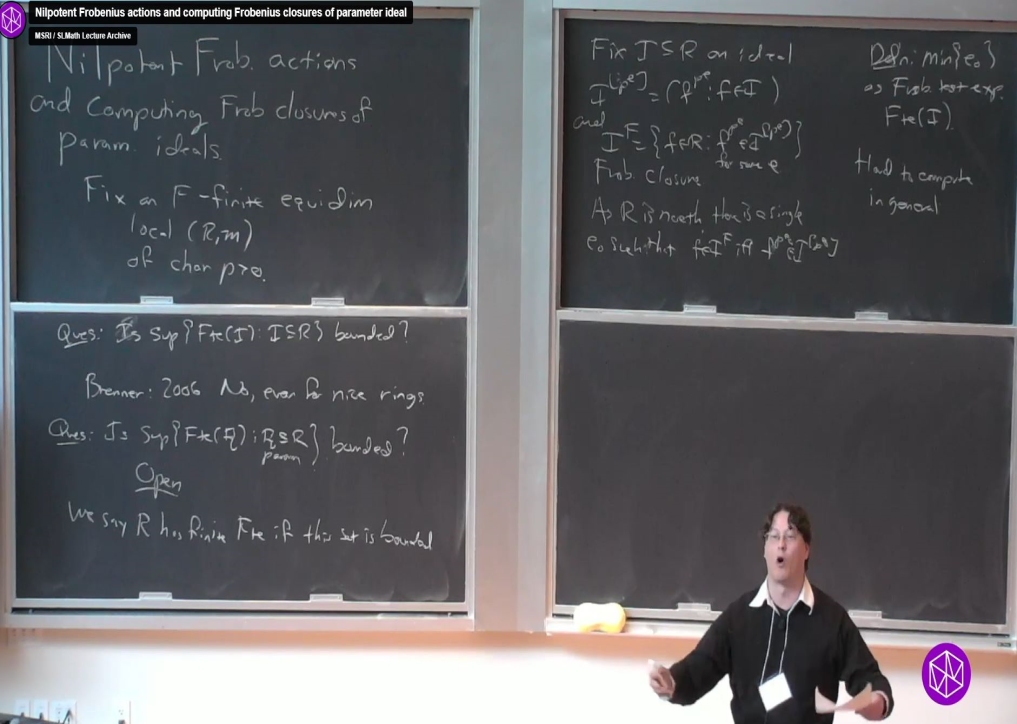Recent Developments in Commutative Algebra: "Nilpotent Frobenius actions and computing Frobenius closures of parameter ideal"
Presenter
April 15, 2024
Keywords:
- Commutative rings
- modules
- ideals
- mixed characteristic
- Frobenius powers
- test ideals
- tight closure
- perfectoid methods
- singularities
- birational algebraic geometry
- multiplier ideals
- symbolic powers
- syzygies
- free resolutions
- homological methods
- derived categories
- polynomials
- monomial ideals
- toric varieties
- Schubert varieties
- combinatorial commutative algebra
- equivariant ideals
- maximal Cohen-Macaulay modules
- applications of representation theory
- twisted commutative algebras
- D-modules
- local cohomology
- computational commutative algebra
- graded rings and projective varieties
MSC:
- 05Exx - Algebraic combinatorics
- 11Sxx - Algebraic number theory: local fields
- 11Txx - Finite fields and commutative rings (number-theoretic aspects)
- 13-XX - Commutative algebra
- 14-XX - Algebraic geometry
- 16Exx - Homological methods in associative algebras {For commutative rings
- see \newline 13Dxx
- for general categories
- see 18Gxx}
- 18Gxx - Homological algebra in category theory
- derived categories and functors [See also 13Dxx
- 16Exx
- 20Jxx
- 55Nxx
- 55Uxx
- 57Txx]
- 19Axx - Grothendieck groups and $K_0$K_0 [See also 13D15
- 18F30]
- 19Lxx - Topological $K$K-theory [See also 55N15
- 55R50
- 55S25]
- 20Jxx - Connections of group theory with homological algebra and category theory
Abstract
Computing Frobenius closures of ideals is a classically difficult problem. Starting in 2006 with work of Katzman-Sharp the problem is made tractable for Cohen-Macaulay rings. Since roughly 2019, starting from work of Quy and Maddox, there has been an explosion of activity in computing Frobenius closure of parameter ideals. This has come by studying F-nilpotent singularities. In this talk, we will review the recent aspects of this research, applications of F-nilpotence to computing Frobenius test exponents, and the significant recent advances in F-nilpotent singularities that arose from this.
